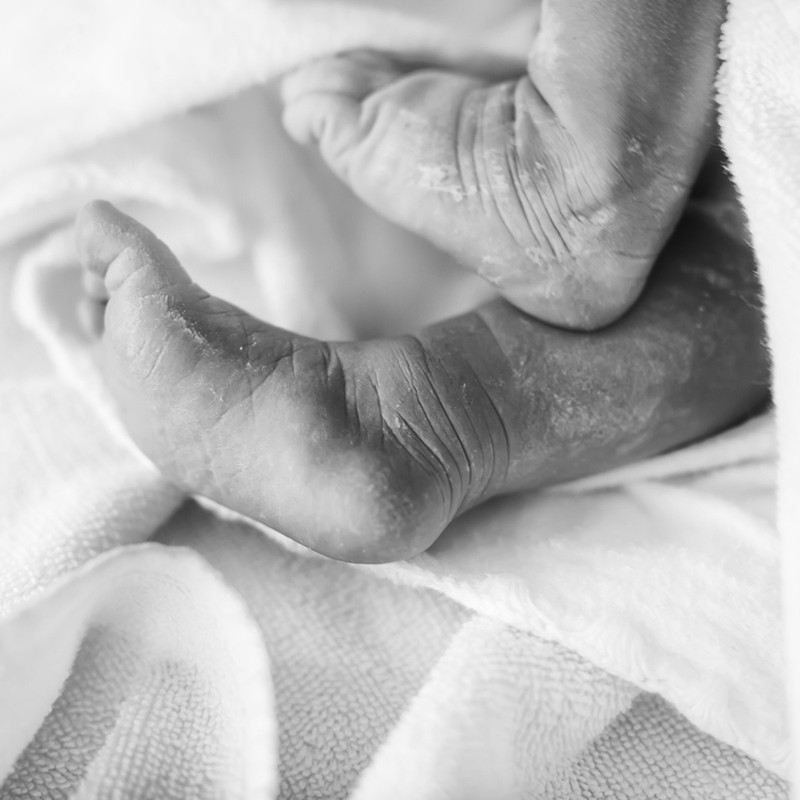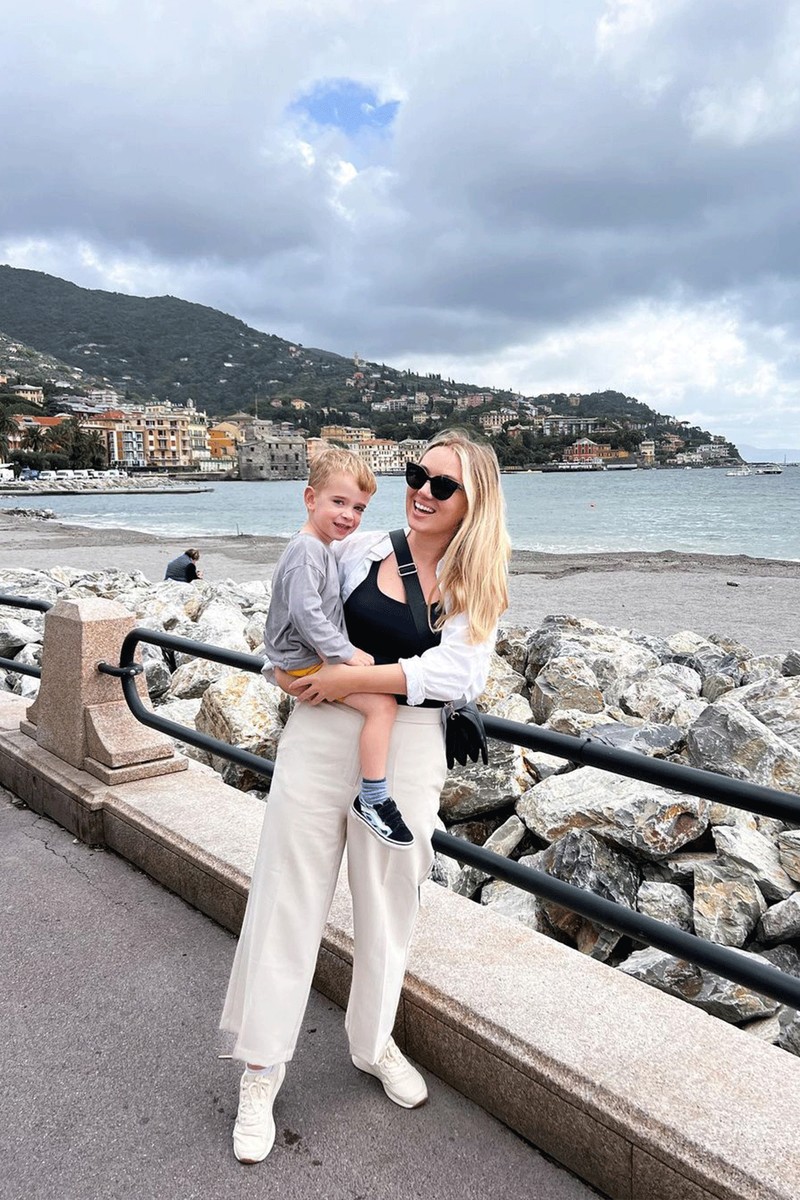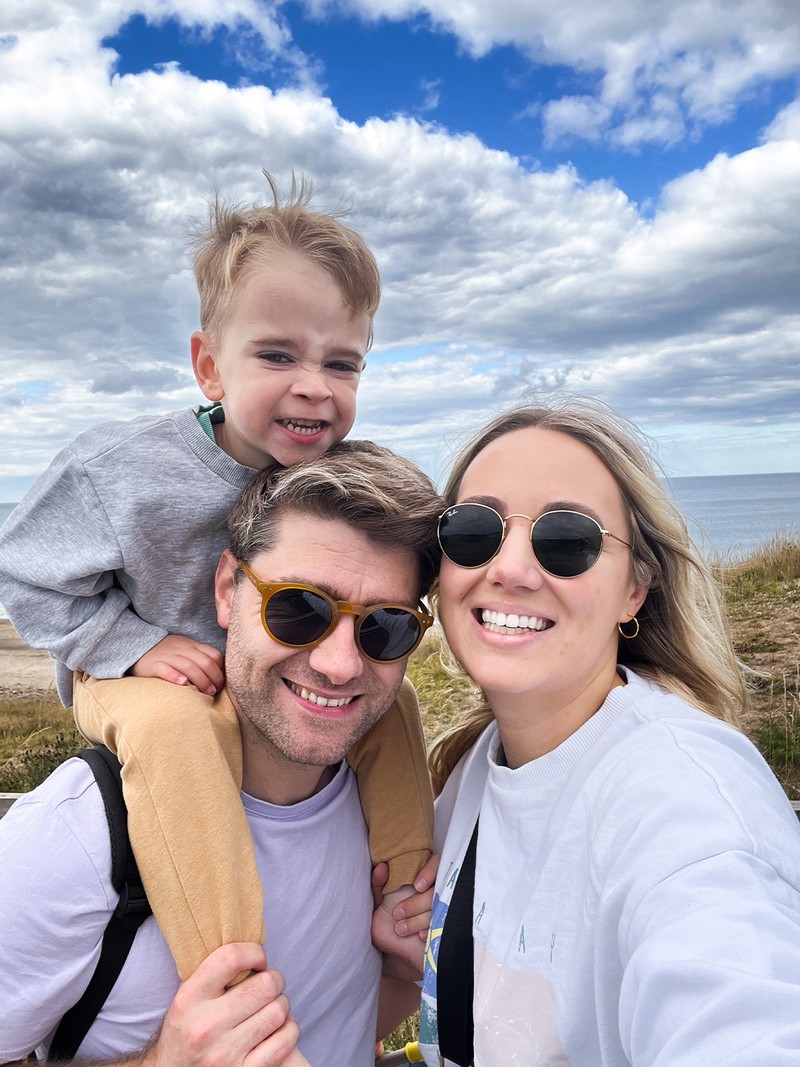One Woman Shares Her Prematurity Story
It all started when I was 25 weeks pregnant. I woke up that day without a clue my life was about to be turned upside down. My first red flag that something was wrong came five days before. I was on the way home from a funeral when I felt a slow and subtle trickle, and I instantly knew something wasn’t right. It continued gradually but when my underwear was soaked through, I knew I needed to get to the hospital fast.
Up until this point, my pregnancy had been deemed low risk. It was my first pregnancy, and everything had been straight-forward up until that point. When I arrived at the maternity unit at York Hospital, they confirmed my worst fears – my waters had broken and were leaking slowly. This is a condition called PPROM (preterm premature rupture of membranes), where your waters break spontaneously before 37 weeks. I was told I’d have to stay in hospital to be monitored in the hope my body wouldn’t go into a natural labour and that I could be sent home. As York Hospital cannot care for babies born as early as 25 weeks, I had to be transferred to the closest available hospital that had a high-level neonatal unit and space for a new baby. This turned out to be Bradford General Infirmary, which was a 90-minute drive away. The following day, I was transferred by ambulance with a midwife.
Contractions started 72 hours later. As it was my first baby, I wasn’t sure if I was just having general pregnancy aches and pains – it was start-stop for around 48 hours. When you’re as early as I was, the doctors don’t check dilation due to the risk of stimulating labour further. It really was a waiting game, and I had no idea how far along I was. I remember having a very difficult conversation with a consultant about viability at 25 weeks and that I may have to make some difficult decisions about resuscitation if my baby wasn’t breathing when they were born. It left me in tears. Up until this point, I’d only been given the ‘best case’ scenarios. I was also offered a tour of the neonatal unit, but I declined – in hindsight, probably out of fear of what I’d see.
The birth itself was quick. I had strong contractions throughout the night but as they couldn’t check my cervix, I had no idea how dilated I was. When the contractions ramped up, I pressed the emergency button at 6am, and Theo was born at 7.30am. He weighed 800g, or 1lb 7oz.
One of the main things I remember about labour was the silence in the room. I gave birth naturally using only gas and air and paracetamol, but the experience was traumatic – I had no idea if Theo was breathing or not. There was a team of around ten medical staff in the room, a combination from both the labour ward and the neonatal unit. As soon as Theo was born, he was taken to the incubator, and I just remember thinking, “Why is nobody saying anything?” The silence was deafening. As the neonatal team incubated him, the midwife said, “He’s okay, he’s over there, take a look.” I remember feeling too scared to look, so I gave the quickest glance, and then he was rushed to the neonatal unit. Holding him after the birth was out of the question.
I still don’t know why Theo was premature. PPROM is often unexplained, but during a birth debrief I was told that it happened either due to an infection or because I have a short cervix, which means it’s prone to dilating early. I don't know which of the two it was, but I have been offered further investigations to find out.
As a silver lining, I feel lucky to have experienced a natural birth. Since speaking to other mums of premature babies, I have realised most premature babies are born by C-section, and a natural labour at such an early gestation is rare. Although I experienced birth trauma and was left with PTSD from the birth (as well as from moments during the NICU admission), I am grateful I got to experience a natural birth.
I first saw Theo six hours after the birth. I saw him through a steamed-up incubator, covered in wires and stickers and his eyes were covered up due to being under a blue light for jaundice. I couldn’t see his face. Seeing him for the first time in that incubator will stay with me forever. I was crushed. It was like seeing my beating heart outside of my body, surviving on its own; like something you should never see in your lifetime. His tiny, frail body was not ready for the outside world. I just remember putting my head and hands onto the top of the incubator and tears rolled down my cheeks. To this day I still find it hard to see photos of Theo straight after birth.
Theo spent 109 days in hospital. At two days old, he had to have emergency surgery on his bowel so we were blue-lighted from Bradford to Sheffield, where they could perform the operation. He then required a second emergency surgery on his bowel five days later, due to a potentially fatal neonatal bowel condition called necrotising enterocolitis. Until this point, I had no idea surgery and anaesthetic could be performed on such a tiny baby. On the day of the second surgery, I thought we had lost him for good, and that day is the main root of the PTSD I was later diagnosed with.
Still, I’m so grateful for the support I received. I was offered one-to-one counselling sessions with a psychologist, even during Theo’s time in NICU. I’m also so grateful to the health visitor that came to visit me at home after Theo was discharged three-and-a-half months later. I remember her saying, “I know Theo is well cared for, so I am here for you.” She could see I was struggling with my mental health and suggested I self-refer myself for counselling and explained I’d be fast tracked as I’d recently had a premature baby.
Therapy was invaluable. I worked with two therapists using cognitive behavioural therapy (CBT) and EMDR, a form of virtual reality therapy that helps you process and recover from traumatic experiences. I no longer live with daily anxiety and my flashbacks are rare. I can be easily triggered, but I’ve come on leaps and bounds. If you have a premature baby or have a friend who does, I recommend Miracles and Shining Stars, a powerful book of hope and love. It’s a collection of poems written by mothers, fathers, grandparents, nurses and doctors in the neonatal unit. I was invited to write the foreword and also contributed my own poem. It is very therapeutic and comforting to read other people’s experiences of the neonatal unit.
Instagram can be a great source of support. Since sharing my journey I’ve made connections with mums all over the world. I recommend following Dr Frankie Harrison – @MiracleMoonUK – and @DearNICUMama. I also recommend anyone who feels their birth was traumatic follow @BirthTraumaResolution. All my Instagram posts about prematurity can be found here.
Theo is about to turn four, and he’s thriving. He’s an active, chatty, energetic and loving little boy. As a baby, he was behind developmentally and we worried a lot, but he has caught up with everything in his own time. His only lasting health issue is ongoing reflux, which is managed with medication. Premature babies are at risk of an incredibly long list of long-time health issues and the earlier they are born, the more likely they are to suffer. We were given so many worst-case scenarios during our time in the NICU, but none of them came to light. He has had so many struggles and had more battles than most of us will have in a lifetime, but he continues to amaze us all. I am so proud of him, and I can only describe him as a miracle. He is the single greatest achievement of my life.
Going back to work was a challenge. After Theo was born, I felt very much like I had lost touch with who I was. As a self-employed travel writer and content creator, my work has always been a huge part of my identity. Despite struggling with my mental health, I was keen to reclaim my identity. Theo started with a childminder at around nine months old for two half-days a week. Since then, I’ve slowly worked my way back up to working three days a week.
If you have a friend with a premature baby, don’t comment on its size. We are all well aware they are small; you don’t need to tell us. And when you do meet the baby, chances are the baby is much bigger than it was at birth, so don’t undermine all the work we’ve done to get them to grow. Two things someone said to me which I found upsetting were “At least you didn’t get any stretch marks”, and “You’re lucky you skipped the hardest part of pregnancy.” I want people to know that carrying a baby to term is a privilege and while the final trimester may be uncomfortable and tiring, it is a far better option than seeing your baby on life support. I would have taken a stomach full of stretch marks to be able to carry Theo safely to term.
Having a premature baby taught me I was stronger than I realised. Theo’s prematurity had a huge impact on my mental health. In Theo’s first year, I was diagnosed with post-natal depression, post-natal anxiety and PTSD. There’s no shame in this. I think you’d have to be a robot to come away from an experience like this totally unscathed. Having a premature baby is a life-changing experience. It shakes you to your core, but it does not have to define you and you can move on from that stage in your life if you want to. Help is available, and things do get easier.
Jess is a travel content creator and heads up The Travelista, an award-winning blog that aims to inspire local and global travel with a family-friendly angle. She also uses her platform to raise awareness about prematurity. Visit TheTravelista.net and follow @TheTravelista for more from Jess, and for further support on prematurity, visit Bliss.org.uk, BirthTraumaAssociation.org.uk and Tommys.org.
DISCLAIMER: We endeavour to always credit the correct original source of every image we use. If you think a credit may be incorrect, please contact us at info@sheerluxe.com.

/https%3A%2F%2Fsheerluxe.com%2Fsites%2Fsheerluxe%2Ffiles%2Farticles%2F2022%2F11%2F1premature-awareness.png?itok=-VDbJpcA)


/https%3A%2F%2Fsheerluxe.com%2Fsites%2Fsheerluxe%2Ffiles%2Fwebsite-images%2F2025%2F04%2Fnew-parenting-background-image.jpg?itok=au3AjSlw)